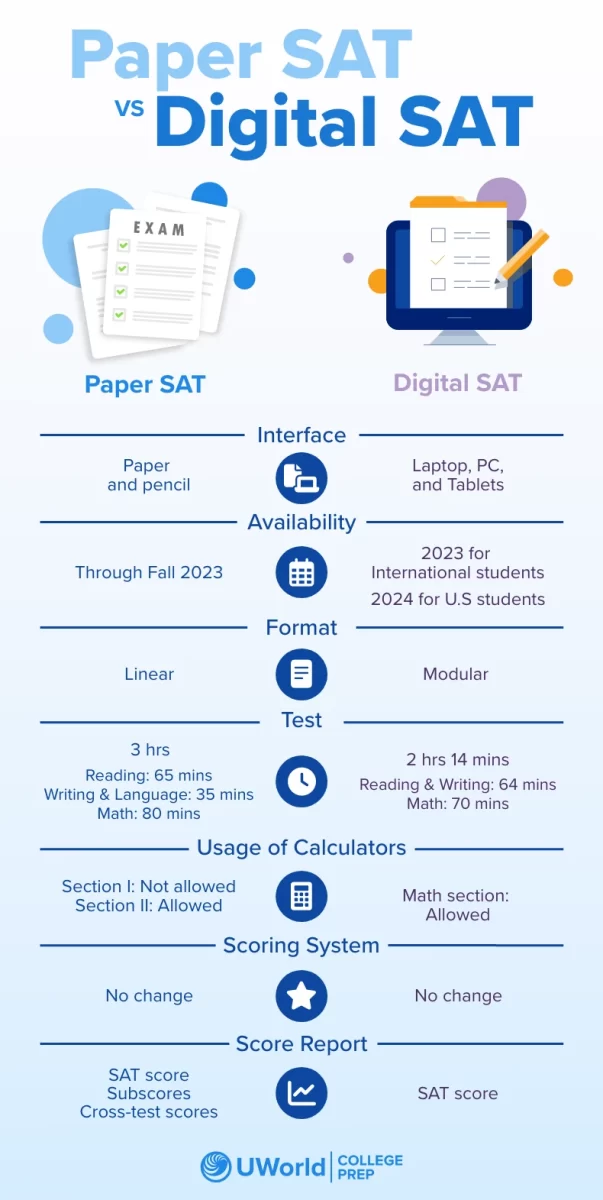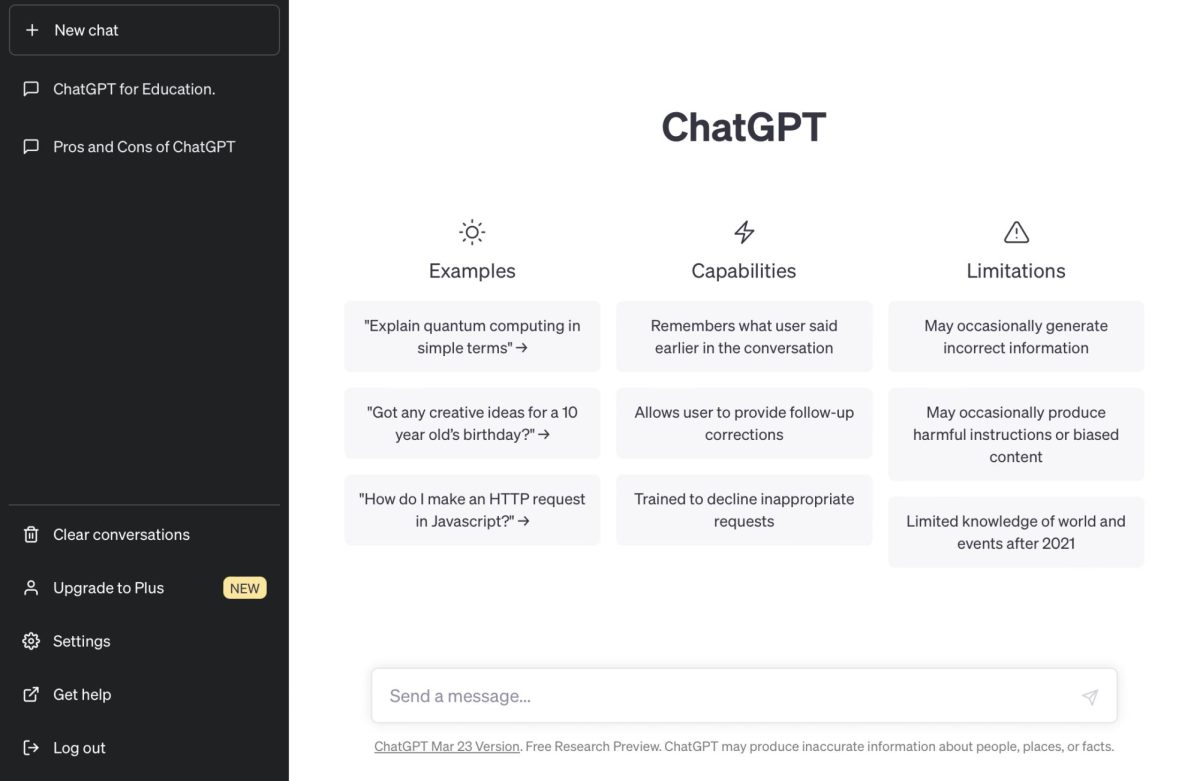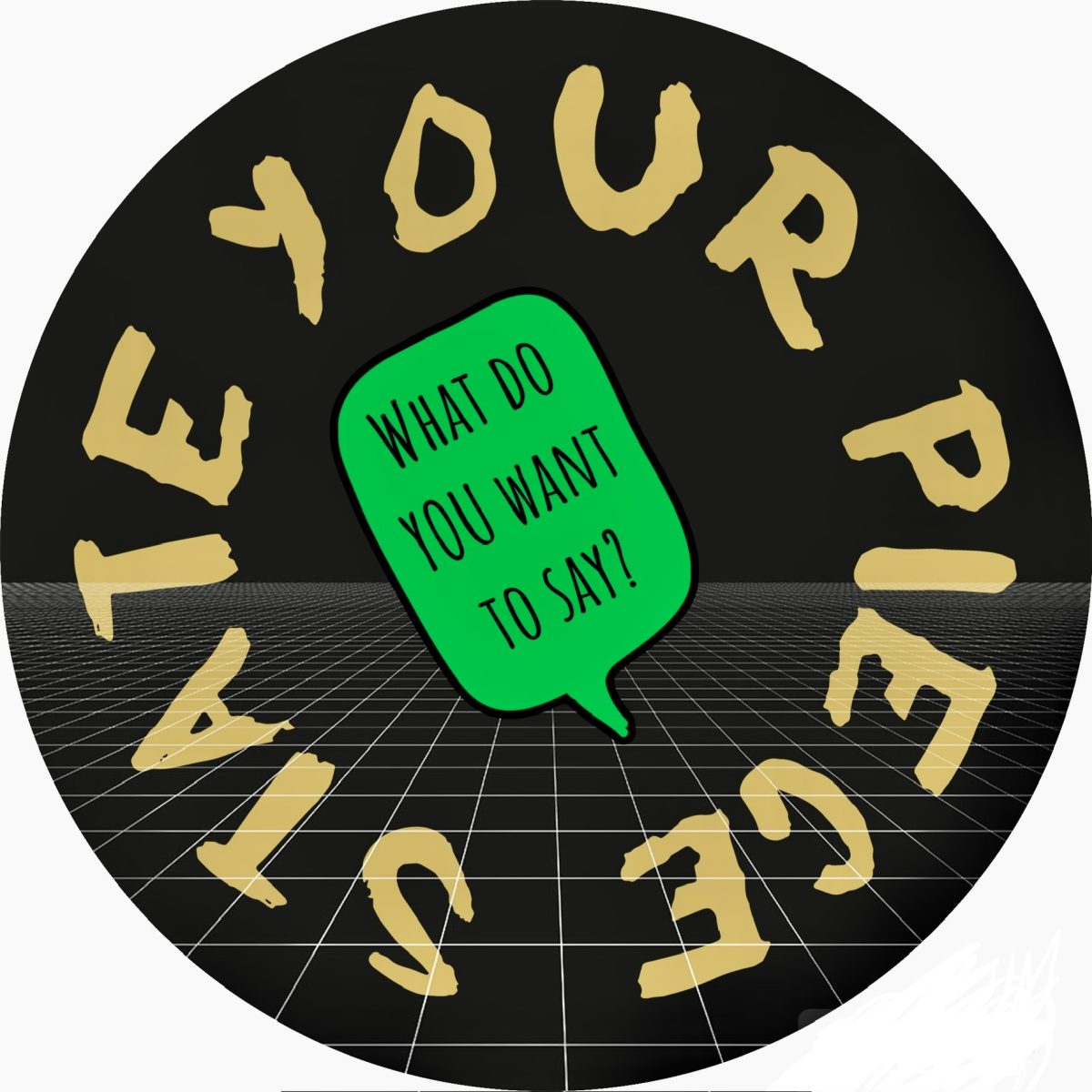Many Latin students, particularly juniors and seniors who have taken the paper SAT, are wondering what the digital version will entail, especially since the transition is less than 2 months away. From people I’ve asked, everyone has little or no information about this and have essentially been treating it as one of those things in life that they will simply figure out when it actually happens. Considering the importance of these tests for many colleges’ admissions decisions, I wanted to explore these changes to see how they might (or might not) affect the process for students.
Some of the most pressing questions are in regards to scoring and how it will work now digitally. All scores from paper will still count and the digital version will still be out of 1600 points; however, super scoring will not be allowed between the digital and paper versions, meaning any scores earned on paper will stay on paper and can’t contribute to a higher score for the digital version. This is obviously a significant change, in particular affecting juniors like me whose SAT accomplishments prior to the shift will not contribute to any SATs being taken after the shift.
Next, in regards to the layout changes, there are now two modules of each section, both reading and writing and then math respectively, totaling 4 modules. The reading and writing modules are both 32 minutes, while the math modules are both 35 minutes, equaling a total testing time of 2 hours and 14 minutes, which is noticeably shorter than the paper SAT. However, by far the most fundamental change is in the very structure of the SAT itself. On the digital, the first module of each subject is taken to ascertain your level of understanding with a mix of easy, medium, and hard questions, and depending on how well you do on this part, the next level will give you questions according to this proficiency level. For example, if you score generally lower on the first module of either subject, then the next module will give you easier questions. On the other hand, if you do extremely well on the first module, then the second module will consist of mostly hard questions. It’s important to note that the difficulty of the questions are taken into account during scoring, meaning there would of course be a benefit from having more hard and medium questions. Now, there are certainly pros and cons to this format. One of the pros is that now the SAT can be more tailored to the individual taking it and give questions more suited to each person’s skill level. Additionally, this will allow a wider range of questions to be testable given every person will only get the questions suited for their academic ability on the second part.
However, a drawback is that making mistakes in the original module can limit the score you can achieve even beyond the mistake itself through restricting the level of questions you could get on the second part. More so, the wider range of questions can be interpreted as a negative given there will be more topics necessary to be studied in order to be fully prepared for the test.
As far as general thoughts on the issue, feedback appears to be negative in regards to the shift. Lindsay Baker ‘24, who took the SAT 3 times, believes this change to unfairly benefit those that have the opportunity to superscore. “It makes superscoring just a lot easier for people who are well-off enough to afford tutoring, given they can focus on certain sections over others… because you can do really badly in order to get easy questions,” Baker said. Tommy Beason ‘24, who also has taken the SAT 3 times, agrees for the most part. “I understand them trying to balance it out by giving harder questions to the students they deem smarter, but it takes away some emphasis and incentive to do well on the first module,” Tommy said. He also points out that though he laments the feeling of control he has while taking the test on paper, he does see some upsides to the change. Tommy said, “It being on paper, I feel like I’m more in control, but we live in a very digitalized world and they’re making it more accessible for people.”
No matter how you feel, there’s no doubt this is a significant and likely game-changing shift in the standardized testing process as a whole. The ACT is also making the switch very soon, following in their footsteps, marking a true transition to the digital age of testing.




















